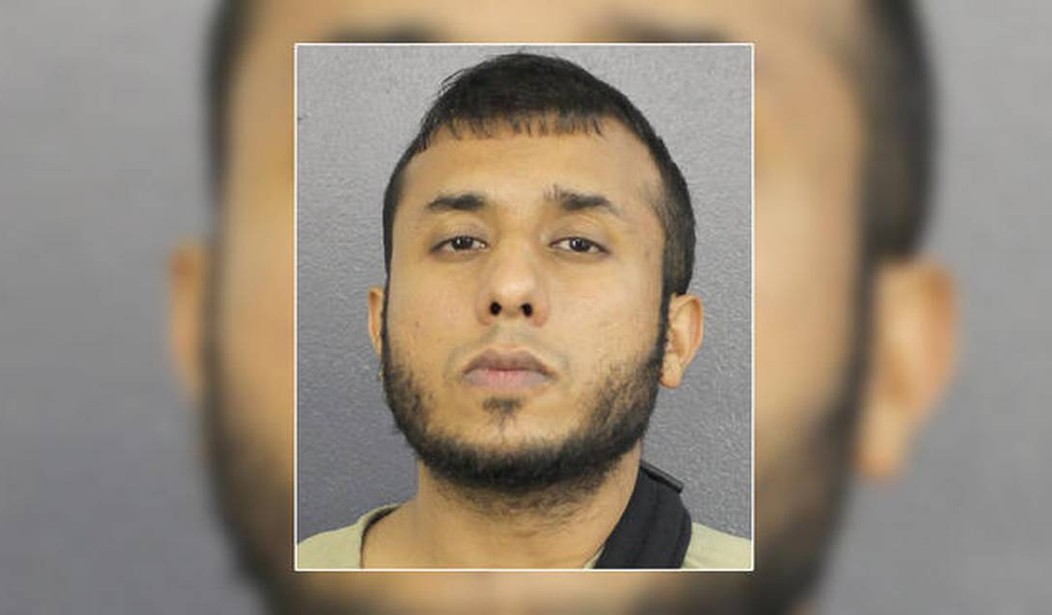A Miami-area man was arrested last week and charged with distributing materials online showing how to build explosive weapons.
Tayyab Tahir Ismail (33), a naturalized U.S. citizen born in Pakistan, is facing multiple charges with a maximum sentence of 20 years on each count.
According to a Justice Department press release and an FBI affidavit filed in the case, Ismail posted bomb-making instructions on a mobile messaging application on at least five occasions from July through September of this year. The documents and videos included step-by-step details of building explosive devices that he intended to be used in terrorist activities.
Ismail has a bail hearing on December 26, and a pretrial hearing on January 2.
One video he posted shows a masked figure wearing military fatigues demonstrating how to build a suicide vest. Another video showing how to make a bomb in the kitchen displays an ISIS flag hanging in the background. The FBI said that the instructions posted by Ismail would, in fact, enable operating devices to be built.
He was a member of multiple rooms on the mobile messaging application where he posted the bomb-making instructions that were shared with a number of ISIS supporters and followers of other terrorist groups.
Ismail also operated a website where he regularly made extremist statements and expressed his own support for ISIS.
He regularly quoted al-Qaeda cleric Anwar al-Awlaki — a frequently cited authority for terror supporters — who was killed in a CIA drone strike in Yemen in September 2011. Awlaki was the former imam of the Dar al-Hijrah mosque in the Washington, D.C., area who served as spiritual leader for several of the 9/11 hijackers.
According to the FBI affidavit, in one message three months ago Ismail encouraged others to conduct domestic terror attacks:
You are surrounded by methods to hit them … kill them devil’s soldiers without hesitation. Make them bleed even in their own homes.
In another message he recommended a variety of methods to conduct such attacks:
There are plenty of methods to attack my brother – take poison in injections and enter malls and inject products with poison – at night come out and cause the fire of houses.
He traveled to his former home in Pakistan in December 2017, and reportedly returned with printed copies of ISIS propaganda.
The FBI has been aware of Ismail since October 2010, when he threatened to blow up a homeless shelter where he was living and calling himself an “al-Qaeda soldier.”
He was back on their radar when his roommate, James Medina, was arrested for a plot to bomb a South Florida synagogue and Jewish school during Passover. Medina pled guilty last year and is currently serving a 25-year federal prison sentence.
The FBI affidavit in Ismail’s case states the pair had a number of conversations about radicalization, which included calls for violent jihad: “Ismail also described Jihad as an Islamic duty, stating that ‘hypocrisy is when one refuses to go to Jihad.’”
The affidavit also claims that Ismail knew of Medina’s bomb plot, but did not inform authorities, saying, “On the day Medina attempted to bomb the synagogue, Ismail learned of Medina’s plans to move forward and conduct the attack, but he did not alert law enforcement.”
Ismail’s case is similar to another South Florida man, Samuel Baptiste, arrested in August, who posted bomb-making instructions online, including titles such as “Instructions: How to Make a Homemade Pipe Bomb,” “Pipe Bombs,” “Improvised Explosive Devices,” and “Improvised Munitions Black Book, Volume 1.” Intending for others to use these documents to conduct terror attacks in the name of ISIS, Baptiste is also charged with material support for a terrorist group.
Earlier this month, ISIS supporter Damon Joseph of Holland, Ohio, was arrested by the FBI for a plot to kill worshipers at a Toledo-area synagogue during Sabbath services. He circulated a document outlining his plans using the name “Abdullah Ali Yusuf.” According to the Justice Department, he was responding to calls by ISIS to conduct domestic terror attacks in support of the group.
I’ve written about two other recent ISIS-related cases.
In October, 19-year-old Naser Almadaoji of Beavercreek, Ohio, was arrested at the Columbus airport intending to fly overseas to join the ISIS affiliate in Afghanistan.
Chicago-area man Ashraf Al Safoo, a naturalized U.S. citizen originally from Mosul, Iraq, was arrested for operating an ISIS online propaganda outlet.
According to the Project on Extremism at George Washington University, as of earlier this month, 168 suspects have been prosecuted for ISIS-related crimes since they began tracking them in March 2014.
NEW: Our updated ISIS in America numbers. pic.twitter.com/YUZQG7GJOv
— Program On Extremism (@gwupoe) December 3, 2018









Join the conversation as a VIP Member